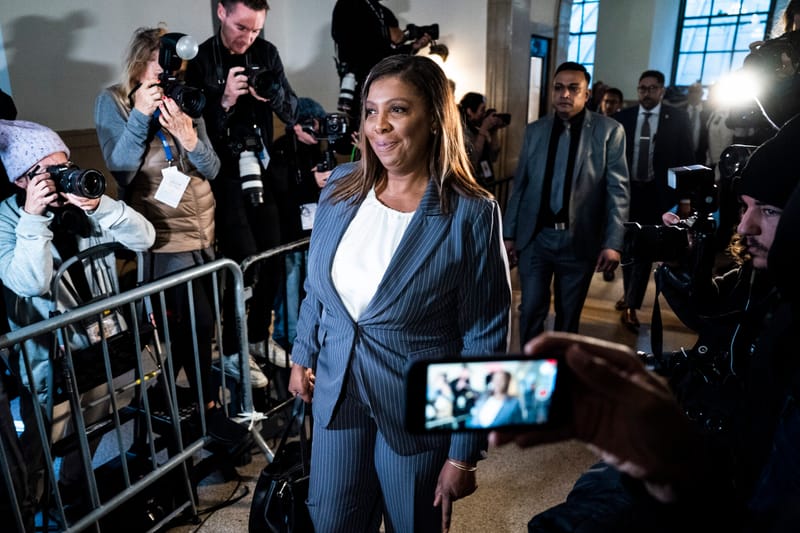Walmart Rolls Back DEI Initiatives Amid Growing Corporate Trend
BENTONVILLE, Ark. - In a significant shift in corporate policy, Walmart, America's largest retailer, has announced a rollback of its diversity, equity, and inclusion (DEI) initiatives, following in the footsteps of giants like Ford, John Deere, Toyota, and several other major corporations. This move comes amid a broader
BENTONVILLE, Ark. - In a significant shift in corporate policy, Walmart, America's largest retailer, has announced a rollback of its diversity, equity, and inclusion (DEI) initiatives, following in the footsteps of giants like Ford, John Deere, Toyota, and several other major corporations. This move comes amid a broader trend where companies are reevaluating their approach to DEI in response to varying pressures, including conservative backlash and internal reevaluation of corporate social responsibility strategies.
A Strategic Pivot
Walmart's decision to alter its DEI policies was hinted at through internal communications and confirmed in a statement from the company, signaling a departure from its previous commitment to diversity and inclusion programs. The retailer has decided to disengage from the Human Rights Campaign’s Corporate Equality Index, a benchmark that assesses companies' policies on LGBTQ+ issues. Furthermore, Walmart is rethinking its product offerings, particularly those aimed at or related to the transgender community, and is reassessing its financial contributions to LGBTQI+ organizations.
This strategic pivot was reportedly influenced by discussions with conservative commentator Robby Starbuck, who has been vocal about his views on corporate DEI policies. Starbuck's engagement with Walmart came after he publicly critiqued the company's policies on social media platforms, suggesting a direct impact on Walmart's decision-making process.
Corporate America's DEI Rethink
Walmart's retreat from its DEI initiatives aligns with a growing trend among U.S. corporations to scale back or restructure their diversity programs. Companies like Ford have recently communicated changes to their employees, indicating a move away from traditional DEI frameworks towards what some call a "belonging" model, focusing less on identity-specific groups and more on universal inclusivity.
John Deere, known for its agricultural machinery, had already made headlines by announcing it would no longer sponsor "social or cultural awareness" events. Similarly, Toyota decided to narrow its community activities to focus on STEM education and workforce readiness, moving away from DEI and pro-LGBTQ events. This pattern reflects not just a corporate response to political pressure but also a reevaluation of how these initiatives align with business goals and customer demographics.
Reactions and Implications
The decision has sparked a mixed reaction. Critics of DEI initiatives, including some political figures and conservative activists, have hailed this as a victory, arguing that such programs often lead to divisiveness or are seen as superficial gestures. Robby Starbuck, for instance, celebrated the announcement as a "huge win" in the ongoing debate over corporate "wokeness."
Conversely, advocates for diversity and inclusion express concern that this rollback could undo years of progress towards workplace equality and cultural sensitivity. Organizations like the Human Rights Campaign have voiced disappointment, suggesting that such moves could negatively affect a company's ability to attract diverse talent and foster an inclusive environment.
Legal and political experts note that this trend might also reflect a preemptive strategy by corporations to avoid potential legal challenges or political scrutiny, especially in a landscape where affirmative action and similar policies are under legal review.
Looking Ahead
Walmart's overhaul of its DEI policies might not be the last in this series of corporate adjustments. As the 2024 election nears, businesses are navigating an increasingly polarized environment where social issues can significantly impact brand perception and consumer loyalty. The shift could set a precedent for how companies engage with social issues, potentially prioritizing economic and operational considerations over social advocacy.
For now, Walmart's move has positioned it within a contentious debate about the role of corporations in social justice, equity, and inclusion. Whether this will lead to a new business model where DEI is less about explicit programs and more about integrated practices remains to be seen. However, with the world's largest retailer leading the charge, other companies might soon follow suit or at least consider how they balance corporate responsibility with business imperatives in an era of heightened scrutiny and diverse stakeholder expectations.




